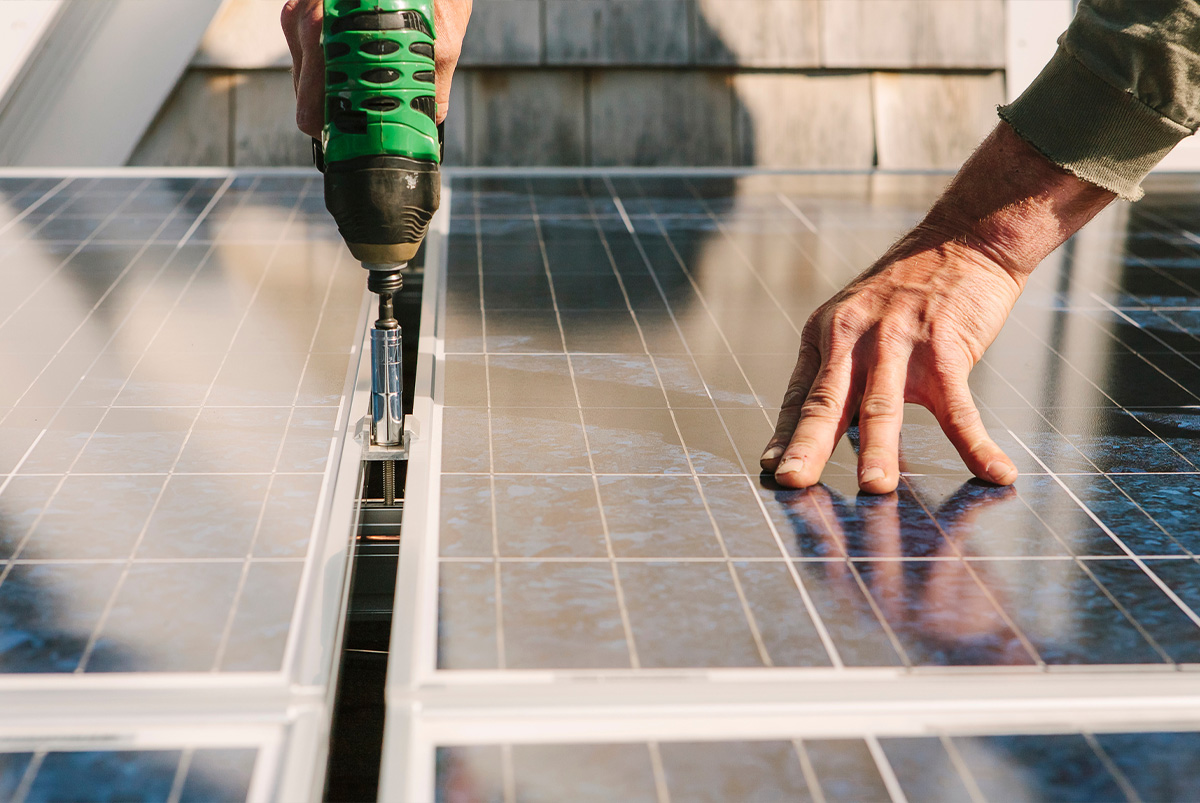
Key Takeaways
- With a few exceptions, the majority of house repairs and improvements are not tax deductible.
- If you make money when you sell your house, capital improvements can raise the cost basis of your property, which reduces your tax liability.
- You may be eligible for a federal tax credit for energy-efficient improvements, and depending on your location, they may also result in cheaper state or local taxes
- Home improvements for medical purposes are deducted as medical expenses.
There are three key exceptions to the usual rule that tax deductions don’t apply for home improvements: capital improvements, energy-efficient improvements, and improvements pertaining to medical care.
Owning a home is likely the biggest investment of your life. You may be wondering how much of your home improvements are tax deductible. The short answer is that many home improvement projects don’t qualify for tax deductions. But some might qualify for a tax break or have other tax implications down the line when you sell your home.
Certain home improvements, such as capital improvements and upgrades pertaining to energy efficiency or medical care, may help lower your tax burden. Additionally, you can be eligible for additional tax breaks if you utilize your house for purposes other than residential living.
Continue reading, as we will dive into the ins and outs of these tax benefits and the rules of what is, and isn’t a write-off.
It might cost a lot of money to keep your home attractive and current. You can document all of these expenses and put them in the “cost basis” (your cost plus any upgrades) of your home for when you sell it, even though you cannot deduct home improvements cost from your income in the year that you make them. Retain all of the receipts and service dates at all times.
What are Home Improvement Tax Deductions?

As previously said, the majority of home improvements aren’t instantly tax deductible for the typical homeowner; nevertheless, there are a few circumstances in which you might be able to deduct the costs of making modifications to your house.
Renewable energy systems
Installing renewable energy systems, such as solar panels, small wind turbines, geothermal heat pumps, and energy-efficient water heaters, is also eligible for tax credits.
Energy-efficient improvements
Certain energy-efficient home improvements are eligible for tax credits from the federal government. Below, we go into further depth about that.
Home office deduction
You may be eligible to deduct a percentage of your expenses, such as mortgage interest, insurance, utilities, and depreciation if you utilize a portion of your house solely for your business.
It may also be deductible to make certain improvements related to the home office space. We get into this topic in a different portion of the piece.
Capital improvements
While they won’t be instantly deductible, improvements that raise your home’s worth or extend its useful life can lower the amount of capital gains tax you owe when you sell it. Below, we go into further depth about this.
Medical improvements
You may be allowed to write off home improvement costs as a medical expense like adding ramps, widening doorways, or installing ramps if you do them for medical reasons or to accommodate a family member with a disability. Below is further information on this.
Landlord home improvements
There are write-offs available if you’re making upgrades to keep or raise your rental income. Below is further information on that.
Home Repairs vs. Capital Improvement
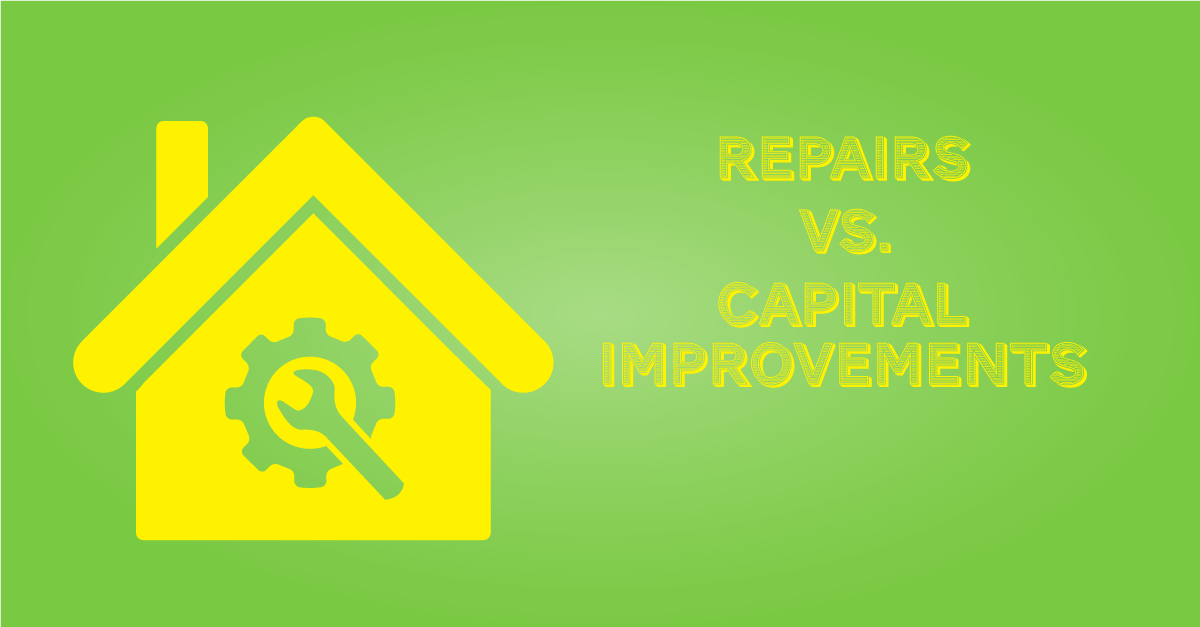
Capital improvements are permanent upgrades, modifications, or upgrades that raise the value of your house and improve the property. According to the Internal Revenue Service (IRS), the following requirements must be met for the property to be considered a capital improvement:
- Your home’s value is “substantially added” by the improvement.
- The property’s useful life is extended by the improvement.
- The enhancement is long-lasting.
Although capital improvements aren’t immediately taxed, the IRS claims that they may have an impact on the taxes you pay when you sell the home.
For this reason, it’s crucial for homeowners to maintain their receipts and other paperwork once they have filed a federal tax return. Ensure you have both electronic and print copies.
In most cases, homeowners are not able to claim home repairs as tax deductible. The individual homeowner is typically not able to claim a tax deduction for repairs and maintenance of their property and equipment, but corporations, sole proprietors, and rental property owners can deduct these costs.
If you have any questions, always with your tax professional before making expensive home repairs.
Qualifying Home Improvement Expenses
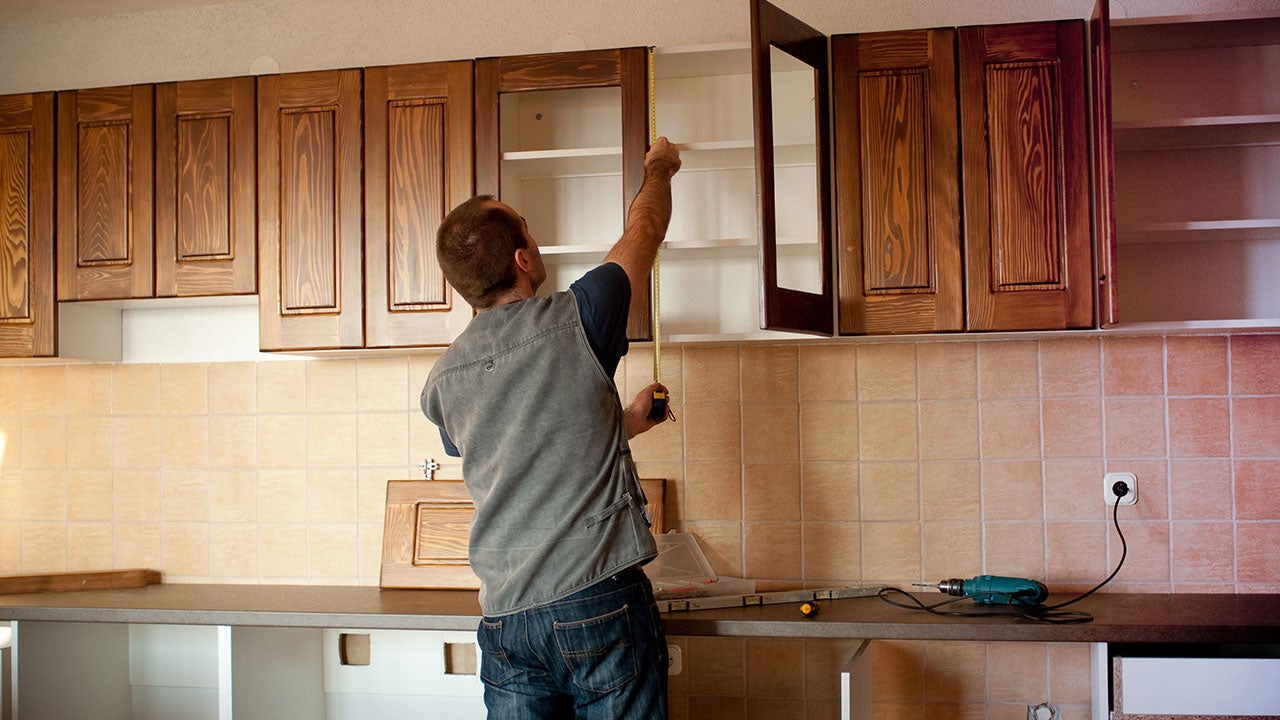
Any item or asset that boosts or prolongs the life of your home qualifies as an improvement. They may consist of:
- A new roof
- Brand-new heater for hot water
- New air conditioning and furnace
- New windows
- Improved kitchen
- Improved restrooms
- Wood or tile flooring
Home improvements that are required for medical reasons may be written off as medical expenses. Near the conclusion of the piece, we shall discuss the what and how of this.
What Effect Do Home Upgrades Have on Your Taxes When You Sell Your Property?
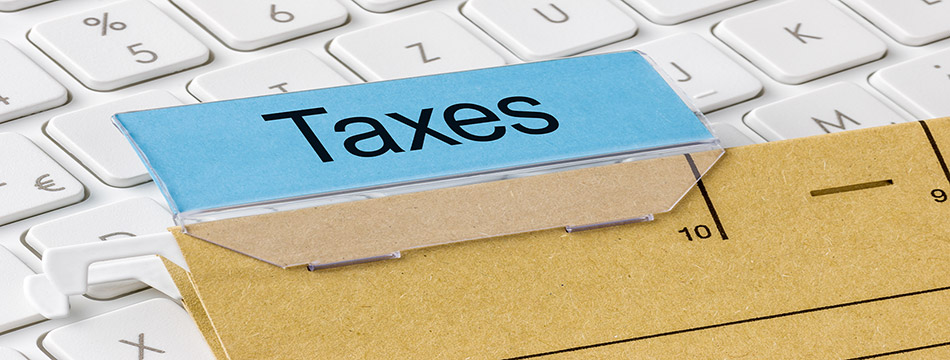
Suppose you’ve made significant home improvements but have made the decision to move. You’re probably wondering how all these improvements will factor into the price at which you can sell your home.
As of right now, in the event that you have owned and occupied the property for at least two of the five years preceding the sale,
- For individuals filing as single filers, the first $250,000 in profit from the sale of a principal residence is tax-free.
- Married couples filing joint returns are immune from paying taxes on the first $500,000 in profit.
Here’s how to figure out how much profit you’ll make when you sell:
- Add up all the expenses you incurred when buying the home, including the original purchase price, any fees, etc.
- This number is called the “adjusted cost basis.” To get even more, add the total cost of all the improvements you have made throughout the years.
- You can compare the sale price you receive for the house with the adjusted cost basis.
You might have to pay taxes on any capital gain you’ve made (usually only if it exceeds $250,000 for an individual or $500,000 for a married couple filing jointly). Work with your tax professional once more.
Several observations regarding the potential tax implications of home sales:
- Before marketing your house, keep in mind that losses on the sale of a personal residence are regrettably not tax deductible.
- Your adjusted basis is decreased by the amount of any rolled-over profit if you sold a house before January 29, 1994, and you took advantage of the previous rule that allowed home sellers to defer paying taxes on their profit by transferring the profit into your new residence.
Work with your tax professional to discuss any upgrades you may have made to your house and the potential ramifications of selling it because each situation is unique.
Home Improvement Tax Credit vs. Tax Deduction
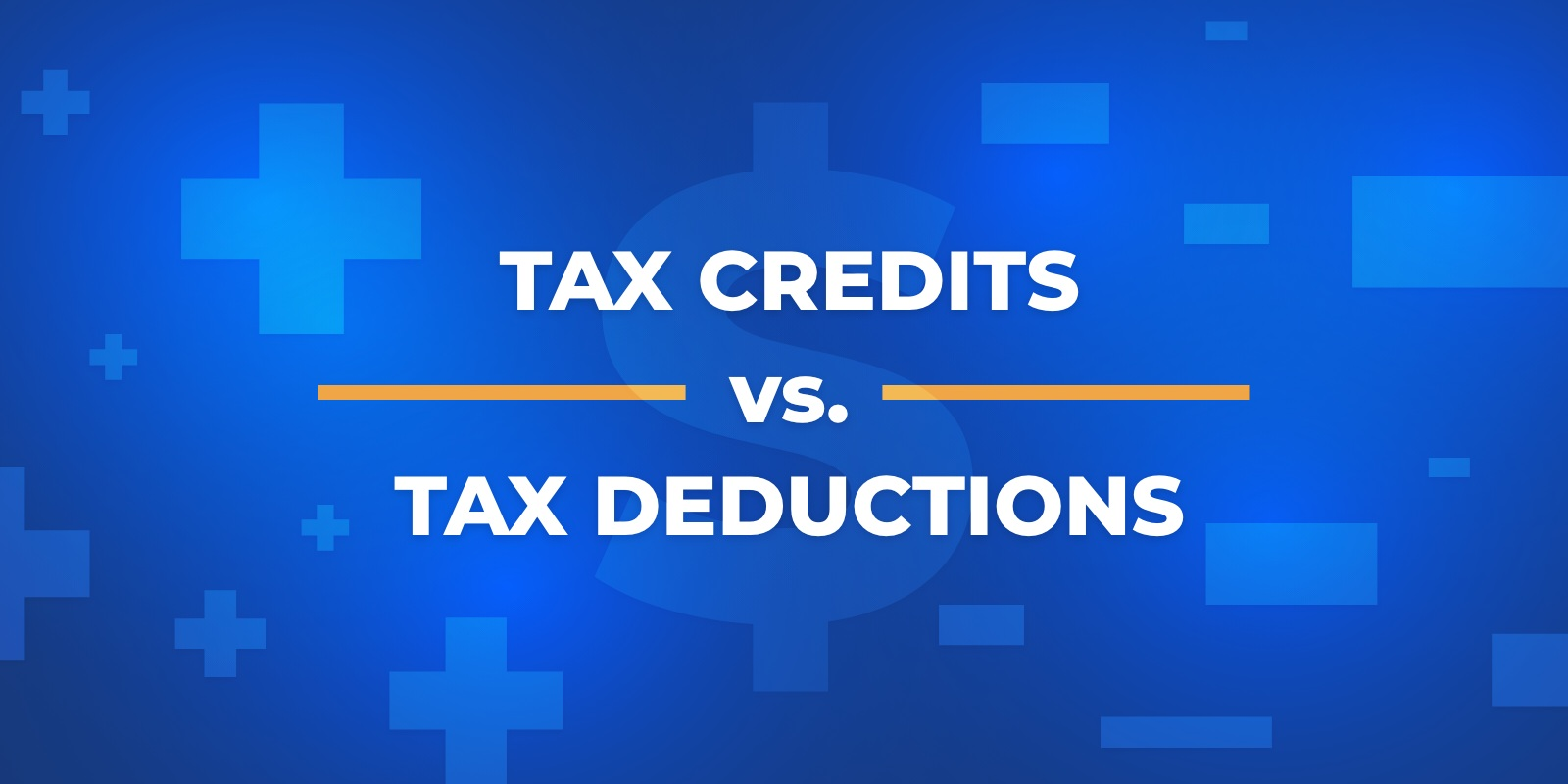
Certain home improvement projects can be eligible for a tax credit, while others might qualify for a tax deduction.
A tax deduction decreases your income before figuring out how much federal taxes you must pay. Conversely, a tax credit can increase the amount of your tax refund or reduce the amount of taxes you owe. Below, we examine a few of these.
Energy-Efficient Home Improvement Credit
You can be eligible for a tax credit of up to $3,200 if you make or have made qualified energy-efficient improvements to the home after January 1, 2023. You are eligible to receive credit for improvements performed up to 2032.
Beginning on January 1, 2023, this credit will pay for 30% of certain qualified expenses, such as:
- Installations of qualified energy-efficiency improvements throughout the year,
- Residential energy property costs, and
- Home energy audits
Both the allowable annual credit and the maximum credit amount for specific categories of eligible expenses have limitations.
The maximum annual credit you are eligible to claim is:
- $1,200 is allocated for energy property expenses and specific energy-efficient house improvements, with caps on windows ($600), doors ($250 each and $500 overall), and home energy audits ($150).
- $2,000 a year for boilers, stoves, or qualified heat pumps.
It’s important to know that there is no lifetime dollar limit on the credit. Up until 2033, you are eligible to claim the maximum yearly credit each year that you make eligible improvements.
You cannot receive a larger credit than what you owe in taxes since the credit is nonrefundable. Any excess credit cannot be carried over to future tax years.
Home Office Tax Deduction
You would have to respond to the following query initially: Is your home office a place of business?
If you utilize your home office exclusively and frequently for client meetings or to carry out the managerial or administrative tasks associated with your trade or business, it will be recognized as the major place of business.
There cannot be another permanent location for the firm where these activities can be carried out. Home office deductions cannot be more than your earned income. You may carry over the non-deductible expenses to the next year if they are larger.
For self-employed individuals, the form to claim a deduction for home office expenses is Form 8829, Expenses for Business Use of Your Home.
It’s crucial to remember that from January 1, 2018, to December 31, 2025, employees’ home office expenses could no longer be written off under the Tax Cuts and Jobs Act (TCJA).
Do I qualify for home office tax deductions?
If your home business is your place of business, you can be eligible for a tax break. You can determine if you can deduct expenses related to using your home for business purposes by asking yourself the following questions:
- Is this area of your house exclusively and frequently utilized for work or business purposes?
- Is this where you do business primarily?
- Is this the place where you meet with clients and customers?
- Do you keep product samples here?
- Is this the place where you run your trade or company?
You might be eligible to write off a portion of your business expenses and depreciation for using your house for business purposes if any of these questions apply to you.
The same might be true if you keep merchandise in a section of your home or use an independent structure (like a shed) to store supplies for your business.
Deducting medical home improvements
If the home improvements are made for the purpose of providing medical care for you, your spouse, or your dependents, they may be deducted as a medical expense.
As long as they don’t raise the value of your house, these costs are entirely deductible, subject to the limits outlined below.
Frequently asked questions
For a rental property, is it possible to deduct home improvements?
You can deduct any necessary repairs to keep your property in a rentable state. This includes anything from replacing a broken window to repairing a leaky faucet and more.
Nevertheless, as was already indicated, improvements that raise the property’s worth must be depreciated over time.
Does a bathroom remodel qualify for home improvements tax deductible?
For the average homeowner, the answer is usually no because most home improvement projects are not tax deductible. But, in some circumstances, remodeling your bathroom may be tax deductible. Changes that are required by medicine would be one.
It would be tax deductible to make bathroom modifications, like installing bars to the shower, to assist someone with a disability or mobility concern.
Before starting work, you would need to present the necessary documentation and consult with your tax pro to determine what is and isn’t permitted. Furthermore, you ought to be eligible to claim these upgrades if you’re a landlord.
Which types of home improvements get the best tax breaks?
The home improvements that save you the most money on taxes will vary depending on your individual tax circumstances.
However, numerous states and the federal government offer incentives for energy-efficient upgrades. For instance, residents who install solar panels in California may be able to receive a property tax return, a state rebate, and a federal tax credit.
